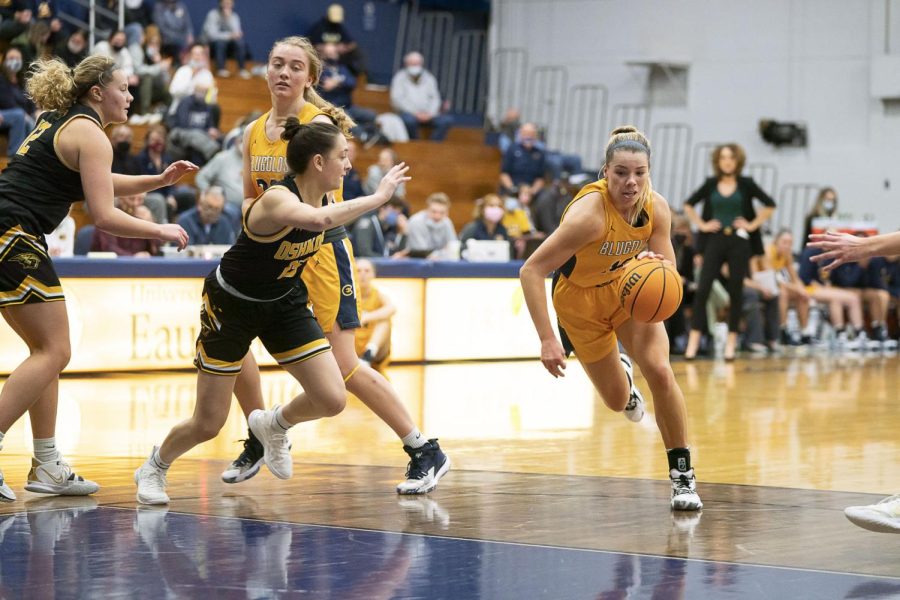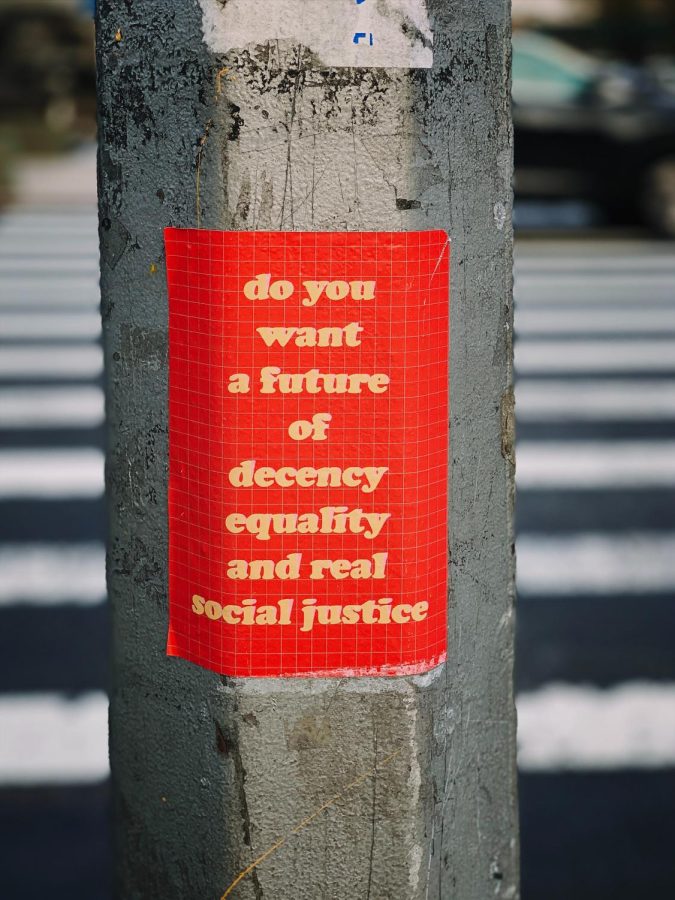Director of “The Vagina Monologues” and recent graduate of UW-Eau Claire Rebecca Hubbard said violence towards women happens and it happens often.
According to the Eau Claire Counseling Services, one in four women in college today have been victims of rape and almost 90 percent of those knew their assailant. It is estimated that over 1,800 American women are raped
each day.
“The Vagina Monologues” is a production put on by the V-Day Campaign and Residence Hall Association to help draw attention to violence against women.
Hubbard said 100 percent of the proceeds raised will go towards various organizations. They plan to donate to the National V-Day Campaign and more locally as well. The Bolton Refuge House and the Center for Awareness of Sexual Assault on campus are others receiving donations.
The creator of “The Vagina Monologues,” Eve Ensler, made it her mission to gather women’s stories. The monologues recall both positive and negative events in the women’s lives, including rape.
Rape culture is an ongoing problem and Hubbard would one day like to see it end.
She said rape is about a need to control a person, and a way for a person to feel better about themselves by putting another person down.
“I feel like that emotion within people will never change,” Hubbard said. “But I think that there is a big possibility that we can change the way that emotion is portrayed instead of being used for rape.”
For Hubbard, “The Vagina Monologues” has been a way to give back to the community and to keep doing what she has been passionate about for the past four years.
“I know quite a few people (that have been sexually assaulted),” Hubbard said. “And especially through this line of work you meet more and more people and you start to talk about it with other people and do a lot more healing with each other and realize that it’s not just your story it’s other people’s too and it’s easier to empathize with each other.”
The cast of women Hubbard described as a close-knit family came together as one and in a matter of weeks organized a life-changing production.
Kristine Rivall, a senior and the second director of “The Vagina Monologues,” said this experience has been extremely empowering and has changed her views regarding women’s issues.
“You are surrounded by so many women who have had some experiences and it really just makes you feel like you are not alone,” Rivall said. “A lot of women seek it out as a healing opportunity. So I think if you have something that happened to you, you can seek out these people and you kind of heal together.”
Hubbard said the show functions as a way for people to become more accepting of their sexuality.
“Everyone is a sexual creature,” Hubbard said. “Just being more comfortable with that is, I think, a huge part of the show and it happens for everyone on a different level.”
Some may feel a little squeamish about saying or hearing the word vagina, but that shouldn’t make them scared to come to the show, Hubbard said.
“One of the biggest things with “The Vagina Monologues” is that people get more comfortable with saying the word ‘vagina,’ because it is in there so much and you have to,” Hubbard said. “And then you realize that, ‘Oh it’s a term, it doesn’t have to be bad, naughty or all hushed up because it’s just a word to describe your
sex organs.’”
Rivall said she has had some people she knew who were very uncomfortable with the subject matter at first but then after the show told her they were happy they went. Still, some people are going to be
uncomfortable regardless.
“I would ask them why, why are you so uncomfortable?” Rivall said. “I can understand if you come from a conservative background, but I think you should be asking the question why are you so uncomfortable with it.”





